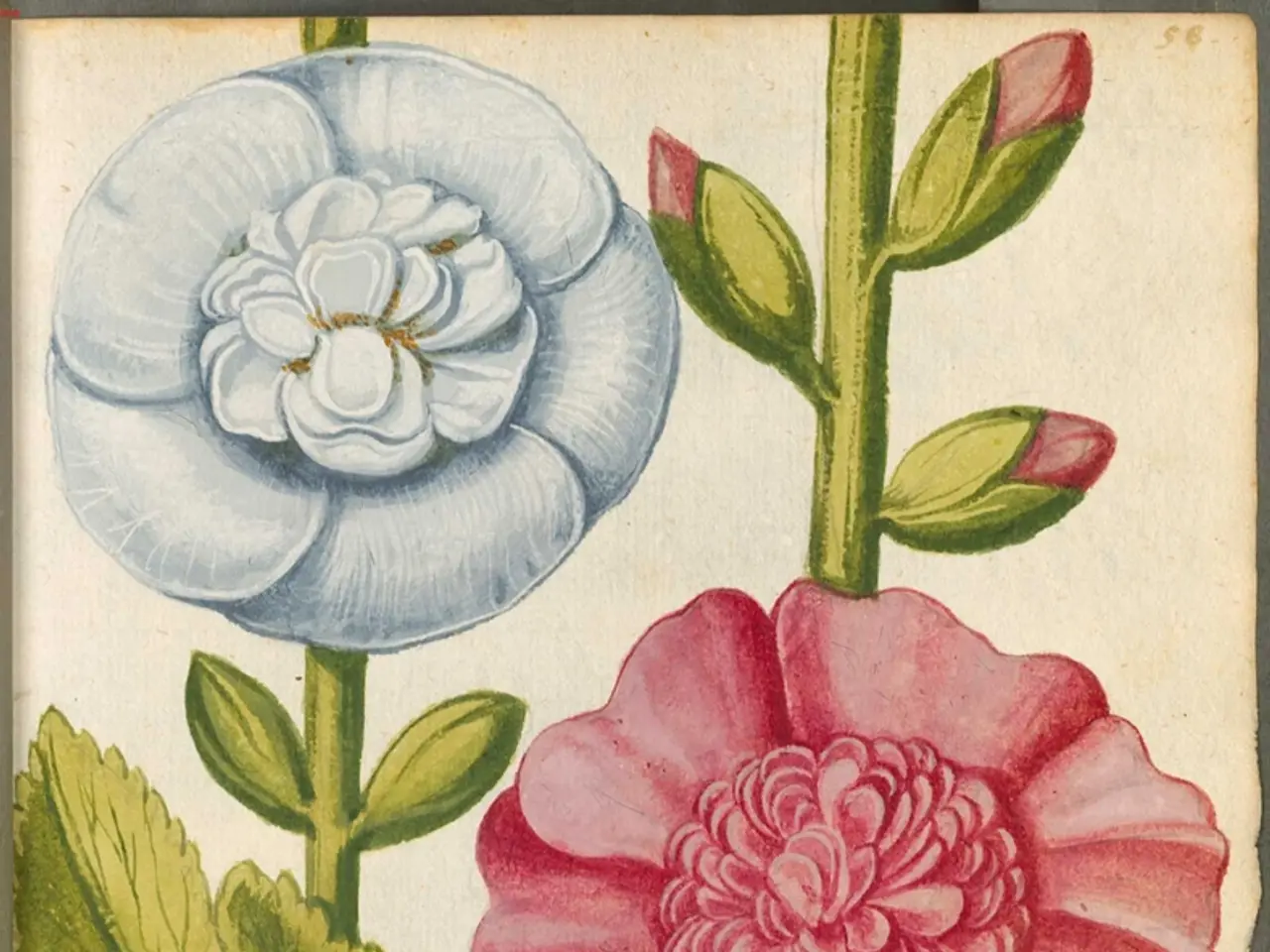Ignite Your Creative Spirit: Simplified Watercolor Techniques for Artistic Newcomers
Getting Started with Watercolor: A Guide for Beginners
Watercolor painting is a beautiful and expressive art form that allows artists to create stunning works of art using simple tools and a variety of techniques. For those just starting out, here's a guide to help you get started on your watercolor journey.
Essential Tools for Beginners
To kick off your watercolor adventure, you'll need a few essential tools. A basic watercolor paint set, preferably with a good range of colors, is the first step. Brands like Winsor & Newton Cotman, Daniel Smith Introductory Set, and Sakura Koi are recommended for their good pigment quality and ease of use.
Alongside your paints, you'll need a palette for mixing, several round brushes in different sizes, watercolor paper designed to handle water well, a water container for rinsing brushes, and paper towels or sponges for blotting. A simple pencil is also needed for sketching out designs before painting.
Basic Watercolor Techniques
Once you have your tools, it's time to learn some basic techniques. The 'wet-on-wet' technique involves applying wet paint onto wet paper to create soft, blended effects. Conversely, the 'wet-on-dry' method offers more control and is used to add sharper details and texture. Blending two colors involves starting with one color, then adding a second into the wet first color and brushing together to blend smoothly. Graduated washes help create smooth gradations from dark to light.
Simple Painting Ideas
Starting out, it's best to keep things simple. Basic shapes like leaves, fruit, or flowers can help you practice washes and blended colors. Simple landscape elements such as skies and hills provide opportunities to explore gradients and mixing. Abstract color studies focusing on blending and layering colors can also be a great starting point.
Tips for Color Use and Keeping Creativity Flowing
Using a limited palette at first can help you learn color mixing and avoid feeling overwhelmed. Experimenting with blending colors wet-on-wet can lead to discovering unexpected hues. Keeping a color wheel handy can help you understand complementary and analogous colors, which enhance painting compositions.
Regular practice without pressure is key to developing your skills. A watercolor journal or sketchbook can help maintain a relaxed, exploratory mindset. Experimenting with different brushes and adding simple textures can keep your interest high. Watching beginner-friendly tutorials and following a progressive course can help you build skills methodically.
Exploring Nature's Beauty
Painting nature, such as flowers and trees, offers a vast range of colors and shapes to explore. Fruits and plants are great for practicing shadows and shapes. Landscapes and skyscapes provide opportunities to explore color gradients. Paying close attention to the direction of light and how it influences the hues and saturation in a painting is important.
Mastering the Basics
Mastering the 'wet-on-wet' technique can help you achieve soft, diffuse effects and subtle color blending. Starting with basic line drawings to outline the eyes, nose, and mouth can help you bring characters to life. Understanding shadows improves facial depiction.
Tips for Success
Practicing color gradients will improve your technique and enhance the emotional impact of landscapes or skyscapes. Observing natural transitions of colors in the sky during sunrise or sunset can help you mimic these effects in watercolor paintings. Paper towels can be used to lift excess water or paint off the paper, rescue a section from becoming over-saturated, and create textures or soften edges.
In conclusion, beginning watercolorists should assemble a modest but quality toolkit, focus on mastering foundational wet-on-wet and wet-on-dry techniques along with color blending, and start simple with natural subjects or abstract color studies. Consistent practice combined with playful experimentation in a watercolor journal aids both skill development and maintaining creative enthusiasm. Happy painting!
Read also:
- Psychedelic research trailblazer embraces his terminal cancer prognosis
- Soaring drownings during early summer heatwave trigger alarm in France
- Symptoms of Lymphoma: Appearance of local and systemic symptoms along with additional indicators
- Confirmed instance of West Nile Virus discovered in Kentucky; authorities urge residents to adopt protective measures






